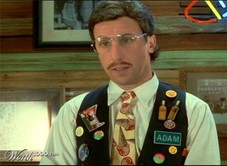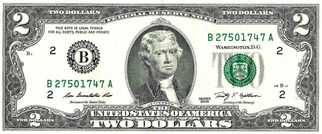|
by Kris Mason  You get paid for the problems that you solve. I was told that by an old boss in relation to my dislike for cleaning the public restrooms at my first job. He said, “It’s a minimum wage task; and you are a minimum wage employee.” After that, I applied it to everything at work and it held up to be fairly true. Ultimately, it was a far better answer than, “Shut up and clean the bathrooms,” because it still applies to how I look at business today. When I hear somebody say that CEOs of major companies shouldn’t make as much money as they do, I believe that they realistically get paid for the problems that they solve. If all your decisions end up where the proverbial buck stops, that’s probably worth a few million dollars to steer a ship that large. Like any professional coach, if you have a losing season and you can guarantee that you will be looking for a position with another team next year; as for the CEO, have a losing year or even a bad third quarter and you’re out. Winning coaches make loads of cash too by the way. So, what does that have to do with being a waiter? You get paid for the problems that you solve. A greeter says hi and seats the table. A manager may or may not swing by your table to check on them. The same person that said hello says goodbye. Everything else in between hello and goodbye is on you. I’m not saying that from my stand point, “It’s all about you.” I’m saying that from the guest’s perspective, “It is all about you.” Who handles everything? You do. Who is blamed if it’s too cold or the music is too loud? You are. Who is blamed if the food is taking too long or isn’t cooked properly? You are. In addition to all the things that you do control, like taking the order, bringing the drinks, refilling, delivering the food, presenting the check and cashing out, you are saddled with dozens of things over which you have no direct control. A CEO can’t control whether a hundred year blizzard keeps people from going out shopping during the crucial holiday season; but if sales are down and stockholders lose money, it’s on him. You are the CEO. You are the Head Coach. You are the Ambassador of the restaurant. You are directly getting paid for the problems you solve. The waiter that complains about only ever getting tipped 10% or worse isn’t solving enough problems. Great business people never blame the weather for a bad quarter. Great coaches don’t complain about bad calls from the ref. Great waiters handle things. Great waiters always earn more money no matter where they work, regardless of what station they end up in. Great waiters solve more problems. "They hated us because we out earned them, in half the time. It even seemed as though we enjoyed ourselves doing it." In most cases, the servers in the restaurant will earn more than most (if not all) of the management team. This is where job title and perception don’t line up with income and wages. That is a huge disparity that I can only explain with the adage, “You get paid for the problems you solve.” Granted, from the overall business standpoint, managers earn salaries in a range from 25K to 35K, and the wait staff is paid “minimum wage.” But once you add in a server’s tips, it’s not even a close race (when comparing two full time incomes). I stopped waiting tables once to take on what was perceived by my friends and family as the responsible thing do and I took on a management roll at the restaurant where I worked. Although it gave me a fresh look at the day to day business side of the restaurant, it was the most miserable year and a half of my life. There I was, the responsible adult with a job title, watching high school and college students earn more than me while only working half the hours that I was expected to work. I no longer interacted with the guests because of the massive (and by my observation, useless) paperwork, busywork and emails that were required at the management level. It had little or nothing to do with how the people spending money at the restaurant were making their decisions or how they were being encouraged or discouraged to return. It was a valuable lesson. I finally understood why all my managers seemed like they hated their wait staff at such a core level. They didn’t hate us because we were needy and interrupted them while they were trying to get their checklists properly filled out; they hated us because we out earned them, in half the time. It even seemed as though we enjoyed ourselves doing it, something I never did when I was in charge. It’s not that I think of myself as more important than management, it’s that my manager’s bosses and their bosses have never had to pay me $25 to $30 dollars per hour to do my job. They feel that my $2 per hour is what reduces my importance to the “People in Charge.” When you’re 50 years old, would you be more comfortable telling people that you managed a $1.5 million a year restaurant or that you waited tables for a living? My decision to go back to waiting tables was the best thing I ever did for me and my family. The perception of my importance was far outweighed by how much money I could put in the bank each week. Whether you wait tables as a part time thing to get you through school, as a second job to cover some bills or as a full time career choice, waiting tables is lucrative. There have been studies that show incentive based pay (tips, commissions, etc.) doesn’t improve quality of service. This has never been my experience. It has always been an effort based return in my eyes. I have always known that I was getting paid for the problems I solved. Nobody ever says, "I had such a great dinning experience last week… all because a nice high school girl that sat us at our table and a lovely manager who asked, 'Is everything okay here,' as he whizzed by the table, seemingly disinterested." It's all about you. So take on the positive mentality of the CEO or the mindset of the winning coach. Solve more problems; make more money. I do Waiter Boot Camps at your restaurant. Contact me to schedule a meeting. 480-600-6973
9 Comments
by Kris Mason  As a fully grown adult male, I know that I’m judged by my peers. I’m a waiter… for a living. As unglamorous as that sounds, being a waiter afforded me the luxury of leading a life in the arts. Being a waiter has allowed me to do the creative things that I love; I’m a working stand-up comic, I’m a highly paid mural artist, I’m a published film critic, and I’m now a writer/blogger. So, as a fully grown adult male, I have no shame for waiting tables. As a server, I have the one thing that my creative endeavors have failed to provide for me… full benefits and group health insurance. I would be more embarrassed if I ran around being actively creative but unable to provide for my family or take my kids to the doctor. I do pity my peers who hate their jobs and hate their lives, and would love to do nothing more than scrap it all and play in a garage band or going around the world surfing, all the while looking down their noses at me, their peer, because they compare our “success” rates. You’re a business person; I’m a waiter. You’ve won and I’ve lost…in most people's eyes. The court of public opinion is where we are all taught to make comparisons and judge those around us. Here is what the average business professional doesn’t know, understand or give me credit for. I’m a businessman. I have an employer who runs a multi-million dollar a year business. I’m a salesman; more so, I’m a commissioned salesman. The more I sell, the more I make. We actually are peers.
The coffee giant (the one with white cups and the green mermaid) has created a culture of business on the fly. Sit there and work on a project, Skype with clients, go through your email list, meet people for interviews, all the while only spending $7 on a coffee and a pastry. The money that was spent meeting clients for lunch ten years ago has been put back into the company’s bottom line.
I was fine with that. We lost some customers through a tough economic downturn. Every business did. The disturbing thing is that most businessmen and women in most large companies still don’t have their old spending accounts back; but they are growing weary of sitting with clients in suits on a low to the ground, overstuffed couch, surrounded by young, noisy, college students. So today's business person has taken the old expense account business model back into my restaurant, and re-vamped it with the new laid back coffee shop culture. He wants to “wine and dine” his prospective clients without all that expensive wine and dinner. Now, she sits down in my booth, opens her laptop, orders a cup of coffee and tells me that she’s already had breakfast and is meeting a client (here in my booth) in a few hours and they’ll probably have lunch after they talk. I've seen it too many times now, the meeting comes and goes, and would you look at that, we talked so long that neither of us has time for lunch, so... "I’ll just take the check." Here is the disconnect. The businessman, who looks down his nose at me, because he’s an important businessman and I’m “just a waiter” thinks that I am there to make a big tip. In my industry, that is 20% or better. Mr. Big Spender then takes his $3.50 check and instead of leaving a 70¢ tip (20%), he leaves a five dollar bill (over 40%), winks at me and pats himself on the back for being such a magnanimous individual. Let’s talk business; let’s talk sales. The first mistake in the above calculation is that I am just looking for a big tip. Wrong. I’m a commissioned salesman; I’m looking for a large commission check. In order to get a large commissions check, I need to make a large sale; and that is where my businessman’s story falls apart. In the course of my sales day, I have a number of tables assigned to me and each table has a number of chairs, some large, some small. My goal is to fill each chair as many times as possible and pitch my products to each person seated. At the end of the day, the more products I sell, the larger my commissions check (my tips) will be. Over the course of 4 hours a server can have a table sat, realistically at most, 4 times. If the table is a 4 top, that’s 16 people. If that server has a 5 table station, that’s 80 people. If he or she works 5 or 6 hours that’s 100 to 120 people. If each guest spends $20, that’s $2,400 in sales. And if they average 20% in tips, they would make $480 per shift. Now subtract reality. Every table isn’t sat once an hour, and a 4 top table can be sat with only 2 or 3 people instead, or a 2 top can have a person eating alone. Although each chair is an opportunity to earn cash, many chairs go unseated for an entire shift. I base my income on a series of averages. When a businessman walks into a restaurant and uses a booth (that’s 4 seats of mine for just 1 person) for four hours, he is drastically reducing my earning potential for the day. If those 4 seats that he just took up could potentially generate $400 in sales over a few hours and put anywhere from $60 to $100 in my pocket, how thrilled do you think I am to have the same 4 seats generate $3.50 in sales with a 40% tip? You, Mr. Big Spender, Ms. Magnanimous, Mr. When-I’m-Out-Trying-to-Impress-My-Friends-I-Always-Brag-About-Being-a-40%-Tipper, are stealing money from me, so that you can have your business prospect or potential employee not have to sit on some cheap plastic chair, where the sound of the coffee grinder is being drowned out by Adele or Bon Iver. Where’s my money, or do I not deserve to work and earn that because you are an "important business person" and I’m “just a waiter?” When you give me that slick business wink and tell me that you’ll be here for a while, but you’ll, “take care of me;” as two business people sitting at a negotiation table, you need to understand that we are worlds apart on what the definition of “taking care of me” really is. You wouldn’t walk into a car dealership and sit behind the wheel of a new, 2016, fully loaded SUV and pop open your laptop and start returning some emails. You shouldn’t go to hair salon and sit in some poor girl’s chair to finish your performance reviews. You would never hit the mall and run into an electronics store to use the latest, high tech equipment so you can finish up that Power Point presentation that’s due Monday. You think your buck and a half tip makes you a hero; I think it makes you an elitist snob. So I’ll make it simple. The next time you come onto my sales floor and you don’t tip me a hundred dollars on a cup of coffee, I’m going to come into your office and use your desk to cut lemons for the night shift. See what I did there? by Kris Mason  If misery loves company and there truly is safety in numbers, then waiters and waitresses are possibly the most miserably like minded people in the world. Whether you are currently waiting tables or have done so in the past, when a group of servers gets together we all try to out do each other with a story of how bad it can be in the trenches, or at least how horrible it was for them. We swap stories like old drunken sailors or hardened war veterans. I have never gotten together with fellow servers and talked about how smooth a shift ran or how I worked all day without getting a bad tip. The rise of social media has given those of us in the service industry a global format to whine and complain about their interactions with their nemesis, the public. From Facebook’s If You Can’t Afford to Tip, You Can’t Afford to Go Out and Eat page to Twitter’s Server Problems to www.TheBitchyWaiter.com, there is now and endless supply of public sharing of restaurant horror stories, waiter “rants” and snarky memes to satisfy even the most bitter server. Most of it is very amusing, even if you have never waited on someone. As much as it all seems harmless it is casting a shadow on an already dark mindset within the industry and amongst my co-workers. "I probably get stiffed once or twice a year..." I’ve seen a great number of posts across all social platforms that suggest the reason that somebody should feel compelled to tip me is because as a server “I only make $2 an hour” and I rely solely on tips for my income; and although this is mostly true, I don’t think that it’s my guest’s problem. I’ve been waiting tables for the better part of 30 years now and I have never been concerned about whether somebody will tip me or not. In that time, I can tell you that I probably get stiffed once or twice a year on average? How could the number be so small? I can also tell you (honestly) that in each of those situations, it was because I deserved it. |
AuthorWith more than 30 years of restaurant experience, Kris Mason offers an insight into the industry seen from the front door to the dumpster out back and all points in between. Archives
July 2017
|
 RSS Feed
RSS Feed